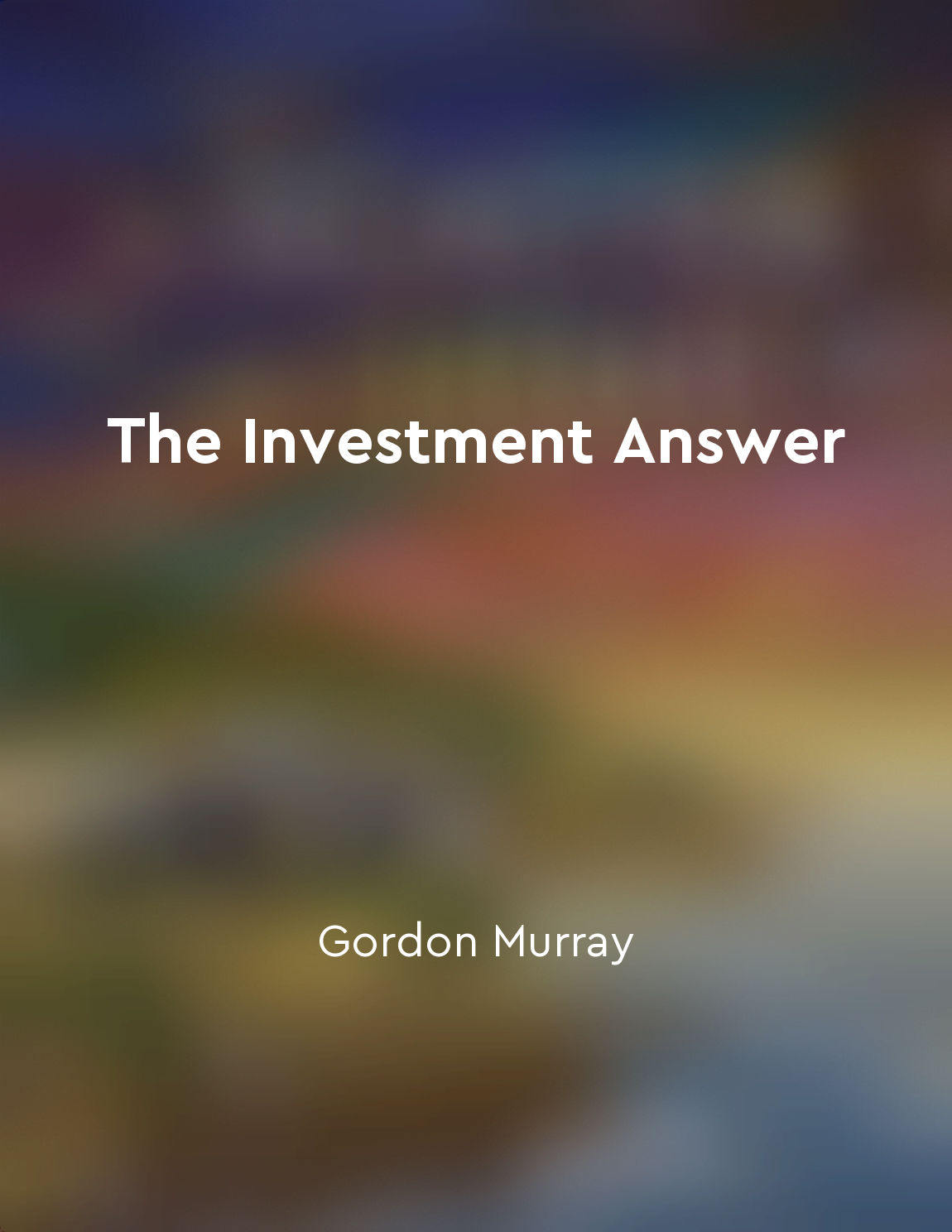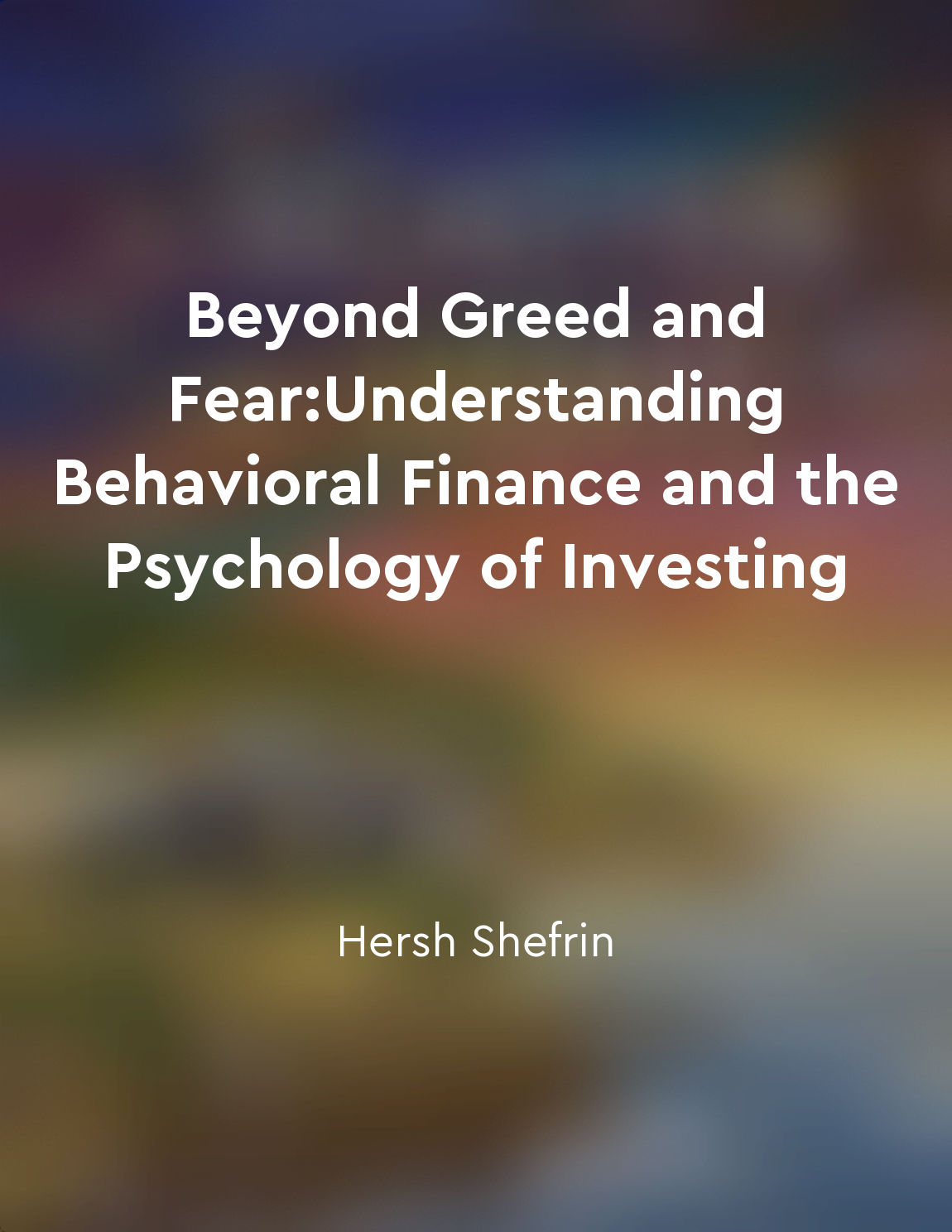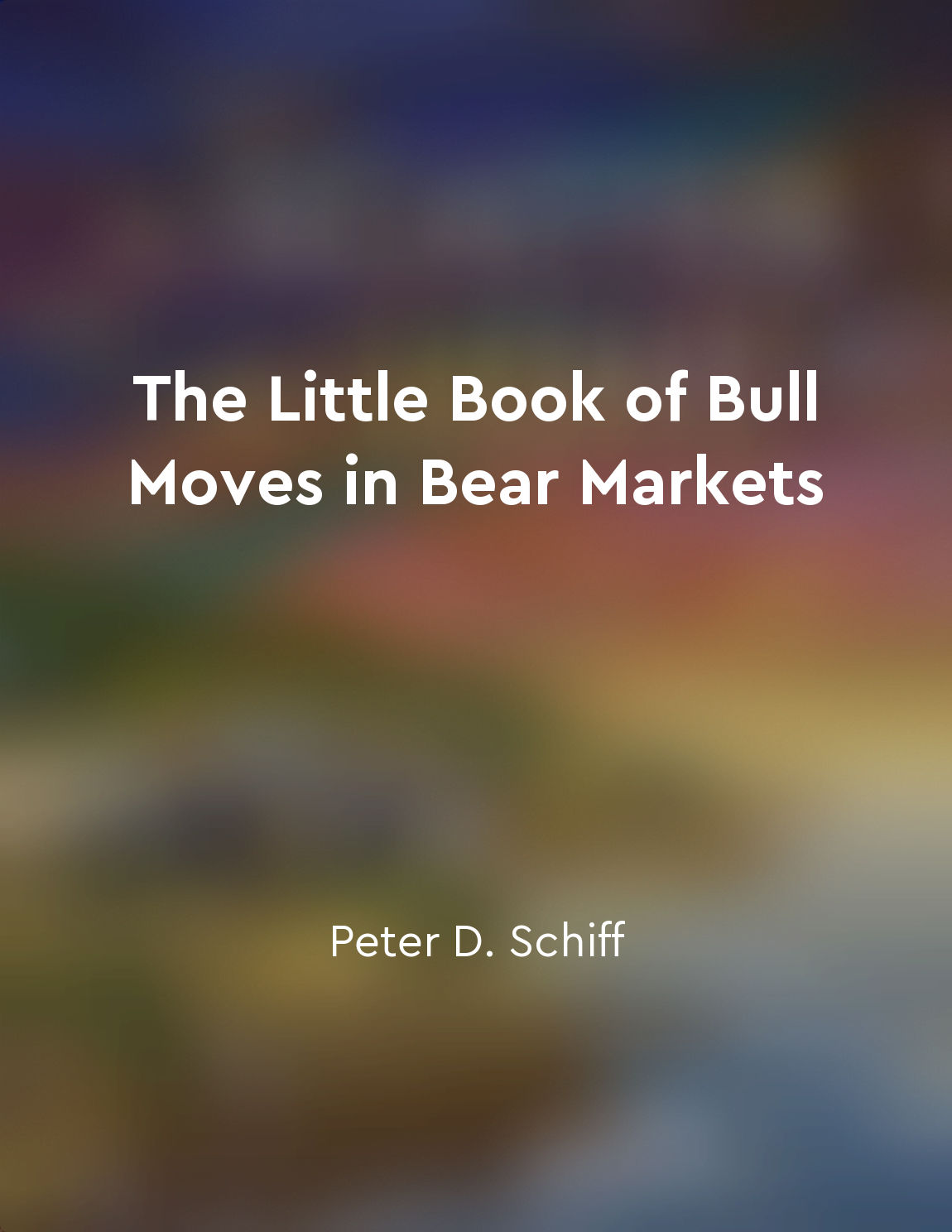Regret aversion can hinder portfolio management from "summary" of Your Money and Your Brain by Jason Zweig
Regret aversion is a common emotional bias that can have a significant impact on the way people manage their investment portfolios. When investors are haunted by the fear of regretting their decisions, they often become paralyzed and unable to make necessary changes to their investments. This fear of making the wrong decision can lead to inaction, even when it is clear that adjustments need to be made. The fear of regret can also cause investors to hold on to losing investments for longer than they should. They may convince themselves that the investment will turn around eventually, rather than accepting the loss and moving on to better opportunities. This reluctance to cut their losses can result in a portfolio that is weighed down by underperforming assets, ultimately hindering overall returns. Furthermore, regret aversion can lead investors to chase past performance, even if it is not sustainable in the long run. They may be afraid of missing out on potential gains and therefore allocate more of their portfolio to investments that have already performed well. This can expose them to unnecessary risk and leave their portfolio vulnerable to sudden downturns.- Regret aversion can cloud investors' judgment and prevent them from making rational decisions about their portfolios. It can lead to suboptimal choices, missed opportunities, and ultimately lower returns. Overcoming this emotional bias is crucial for effective portfolio management, as it allows investors to make decisions based on logic and analysis rather than fear and regret.
Similar Posts

Choose investments based on your financial goals
When it comes to investing, it is crucial to have a clear understanding of your financial goals. Your goals should guide your i...
The potential for behavioral economics to revolutionize traditional economic theories
In the world of economics, traditional theories have long been based on the assumption that humans are rational beings who make...
Invest in yourself
Investing in yourself is the most important investment you can make in your lifetime. This concept is not about buying stocks o...

Money management is key
Managing your money effectively is crucial to achieving financial success. Without proper money management skills, you may find...
Take a passive approach to investing to capture market returns
An investor who follows a passive approach does not attempt to outguess the market or to pick individual stocks that will beat ...
Practice mental rehearsal for success in trading
To achieve success in trading, one must consistently practice mental rehearsal. This involves visualizing oneself making succes...

Belief perseverance can prevent investors from accepting new information
When investors have a belief about a particular investment, they tend to persevere with that belief even when faced with new in...

The media can influence investor behavior
The media wields significant power when it comes to shaping the perceptions and actions of investors. Through various mediums s...
Fear of missing out can cloud judgment
When you are fearful of missing out, you're likely to make decisions that aren't in your best interest. That's because fear can...
We often make irrational financial choices
Our brains are not wired to be perfect when it comes to making financial decisions. In fact, we often make choices that go agai...

